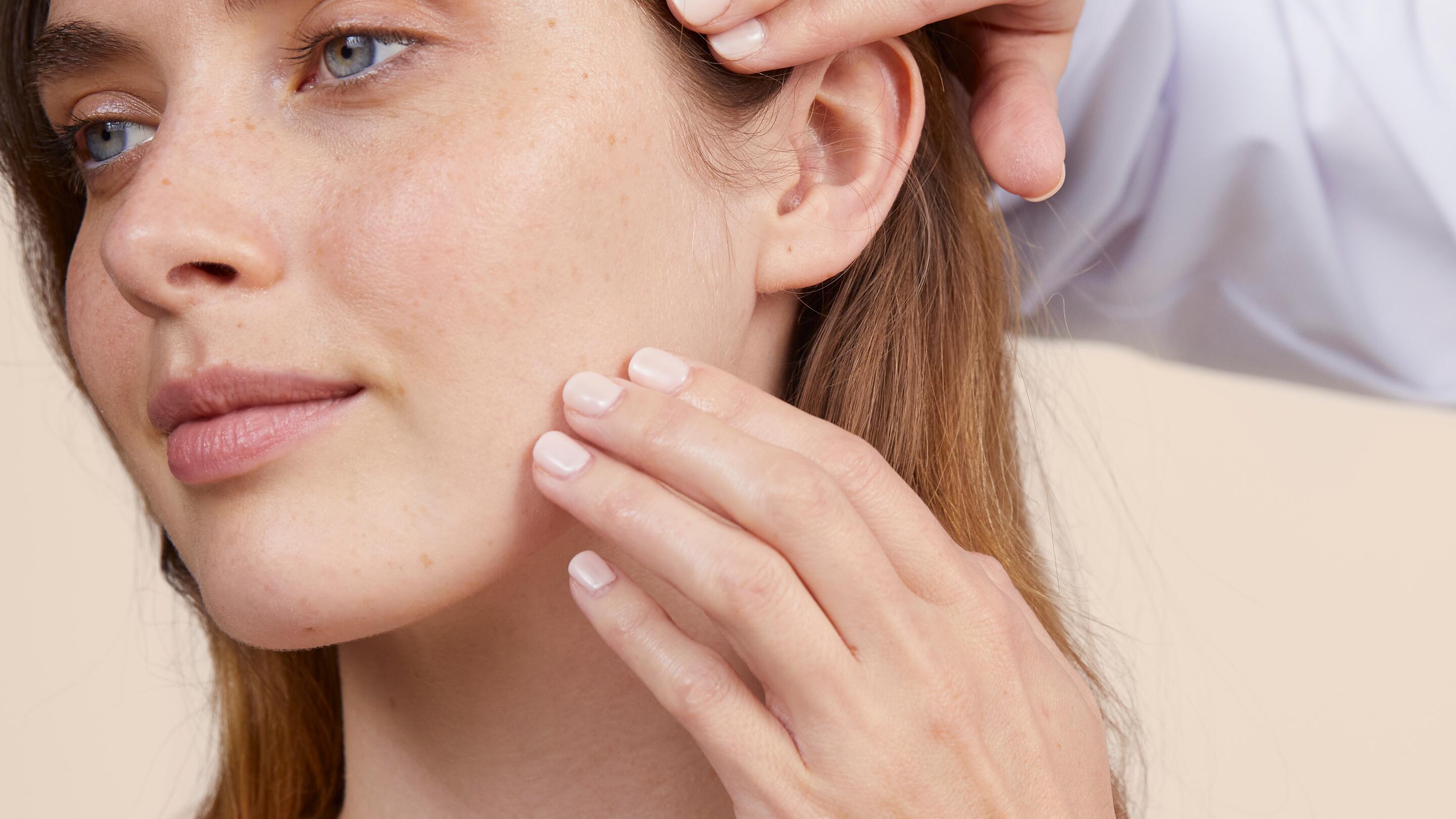How do you know if you have eczema-prone skin?
The symptoms of eczema-prone skin on the face are inflammation of the skin, recognisable by red, very dry patches with blisters on the sides of the nose, ears, cheeks, eyelids and neck. These skin lesions cause severe itching, known as pruritus.
This skin condition happens on very dry and damaged skin, with flare-ups of eczema-prone skin. In other words: periods of worsening symptoms and increased itchiness, interspersed with periods of remission. In general, this type of skin, known as atopic skin, is extremely reactive to cosmetics.
Causes of facial eczema-prone skin
Facial eczema-prone skin is a chronic skin condition, a dermatosis, affecting the immune system and the skin cells that act as a barrier to allergens.
Contact eczema-prone skin
Contact eczema is caused by a hypersensitive reaction of the skin to an allergen, even if there is no genetic predisposition. This reaction takes place in two phases:
- A first exposure to the allergenic product.
- A second exposure allowing the skin to recognize the substance.
The list of potential allergens is extensive:
- Chemicals (paint, glue, dye, pesticides, detergents, washing powder)
- Makeup and irritant cosmetic products (perfume, shampoo, nail polish, etc.)
- Pollen
- Metals (nickel, chromium...) and rubber
- Medication (antihistamines, antibiotics, anaesthetics, etc.)
Eczema-prone skin
Eczema-prone skin is the most common form. It affects children and infants from the first few months of life and lasts somewhat through adolescence and adulthood.
Most of the time, the origin of atopic eczema-prone skin is genetic. Stress and certain environmental factors can also be important factors contributing to an eczema outbreak with a predisposed skin condition.
Immunological and skin abnormalities are passed on from generation to generation or appear as a result of environmental stresses. It’s then easy for the allergenic molecules to penetrate the epidermis and trigger intense reactions from the skin's immune defences, such as the inflammation typical of eczema.
Is eczema contagious?
Because facial eczema-prone skin is not an infectious skin condition it is not contagious.
How do you treat eczema on the face?
People with facial eczema-prone skin should seeka health professional, preferably a dermatologist. The doctor will first try to identify the cause and the possible allergen responsible in the case of contact eczema-prone skin. They will then call in an allergist to carry out skin tests.
The doctor can then prescribe an appropriate treatment. This usually takes the form of topical corticosteroids applied locally to the eczema patches. Depending on the intensity of the symptoms, the doctor may also recommend:
- Antihistamines if the itching is too severe
- Antibiotics and antiseptics to counteract bacterial superinfection
- Gentle hygiene products and an emollient for maintenance
- Psychological support if stress is identified as the main cause
Which cream should you use for eczema on the face?
Anti-inflammatory medical treatments containing corticosteroids are effective at treating acute eczema attacks, as they calm the inflammation and itching, but they do not prevent recurrences.
As a preventive measure and in addition to the treatment, a skincare routine suitable for eczema-prone skin helps to space out flare-ups.
- To cleanse atopic skin, the and , used with lukewarm water, cleanse the skin without aggravating the skin's dryness. The lipids in these facial cleansers nourish and restore the skin barrier.
- Additional rinsing with soothes and calms facial irritation.
- Emollients are the ultimate moisturising, nourishing and anti-itching daily care products for facial eczema-prone skin. Our laboratories have formulated hypoallergenic, fragrance-free emollients to restore the skin's barrier function and respect the cutaneous flora of atopic skin. The is recommended for dry, itchy skin and the is richer for very dry, itchy skin.
- You could also apply XeraCalm A.D Lipid-Replenishing Cream as a day cream as its texture is quite light and XeraCalm A.D Lipid-Replenishing Balm as a night cream as its formula replenishes more lipids.
- For intense itching, for example on the ears, nose, neck or even the eyelids, immediately soothes.


